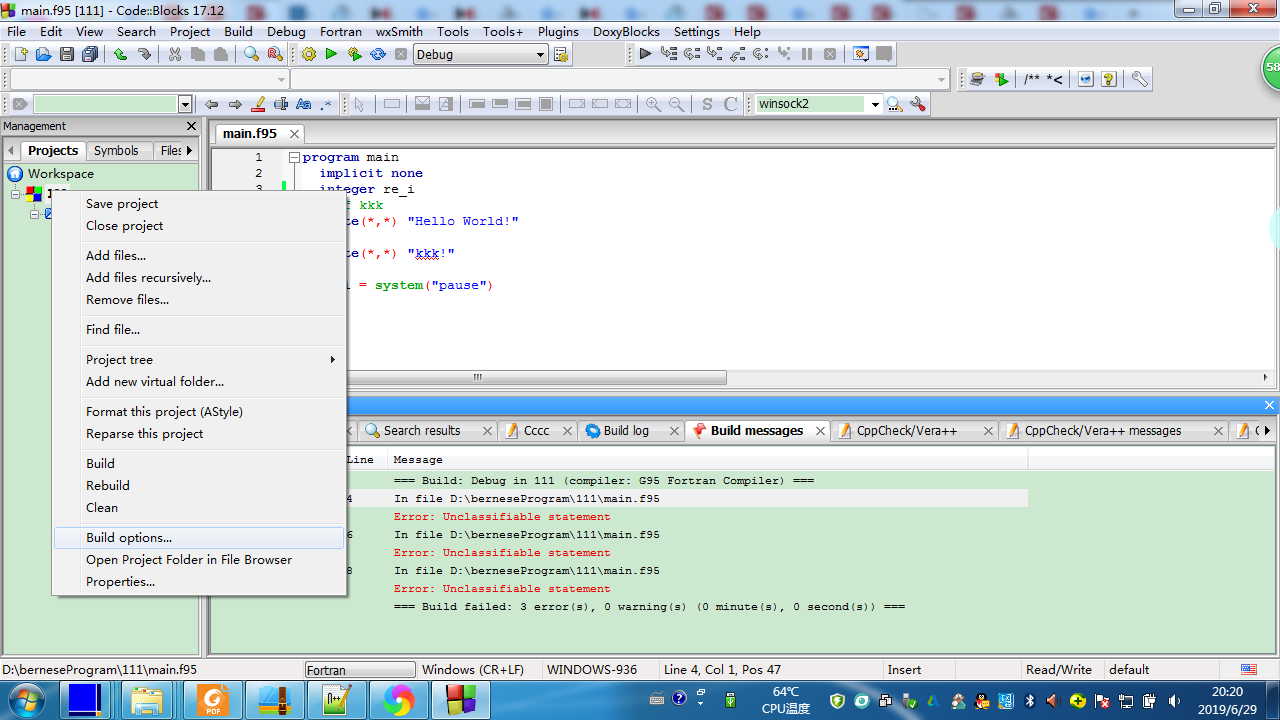

Error messages are like: "somefile.l", line 15: rule cannot be matched.
#UNCLASSIFIABLE STATEMENT AT 1 SIMPLY FORTRAN FREE#
The free alternative to LEX, a lexical parser generator. = ',' appends a comma ',' to option (not variable) "efm" Set errorformat^=%*:\ %f:%l:%*:%m " match libc assert This pattern should be prepended to have precedence over other error patterns. Some are listed here.Īssert messages are like: prog: some_file.c:16: some_func: Assertion `val = 0' failed.

Since compilers and other programs generate messages according to their own rules, there are a multitude of error formats that could be useful. Or you could use the " -=" operator, e.g. If some builtin format bugs you, you could be tempted to copy the default errorformat and remove the annoying format (good luck to escape all the must-be-escaped characters). If you use the " +=" operator for the assignment, it will append the text to the current value, separated with a comma, as required for the errorformat. You can use the set errorformat command in (for instance) your vimrc file to add more for tools you use. Vim comes preloaded with some good defaults. It also provides some simple reformatting and highlighting to standardize the display of recognized messages. If an error/warning message in the quickfix window matches one of your error formats, you can select it (double click in gvim, or press Enter on the line) to jump to the correct place. The errorformat (or efm) option is a comma-separated list of scanf-style format strings that are used with QuickFix to extract information like file name, line number, column number, etc, from errors and warnings generated with :make. Tip 1575 Printable Monobook Previous Next


 0 kommentar(er)
0 kommentar(er)
